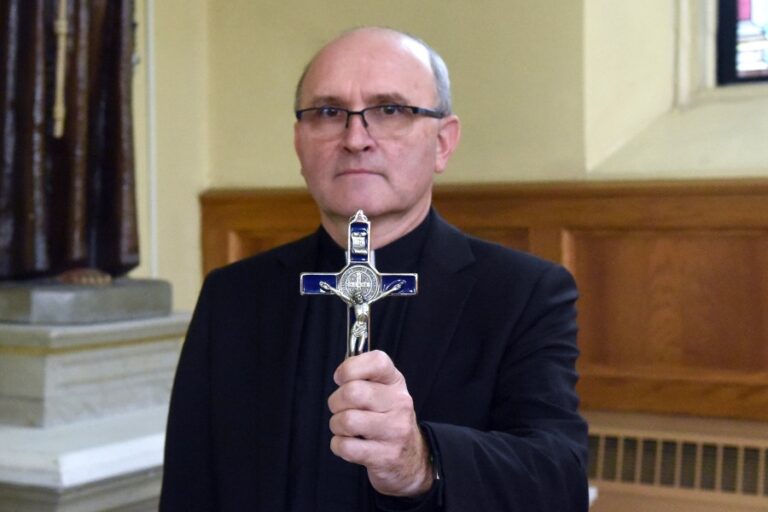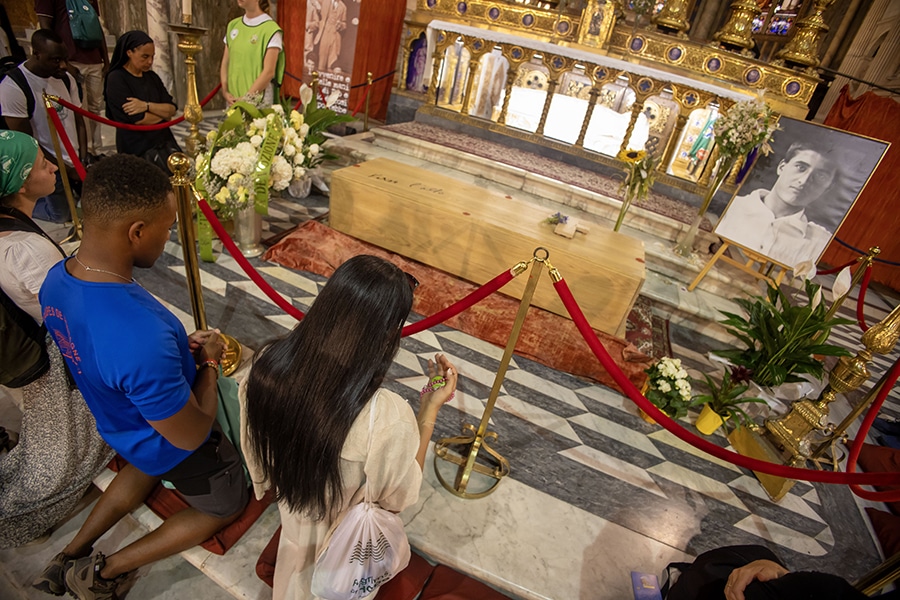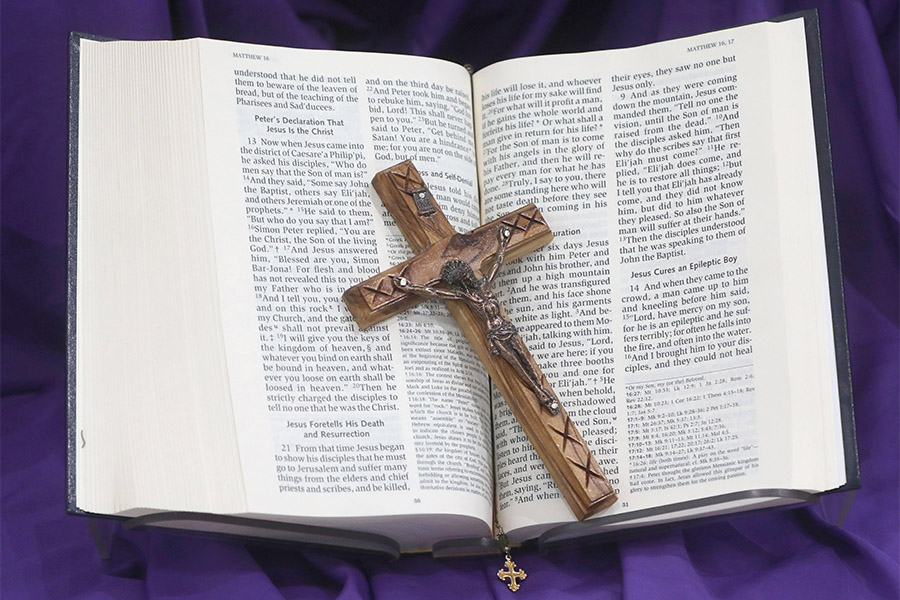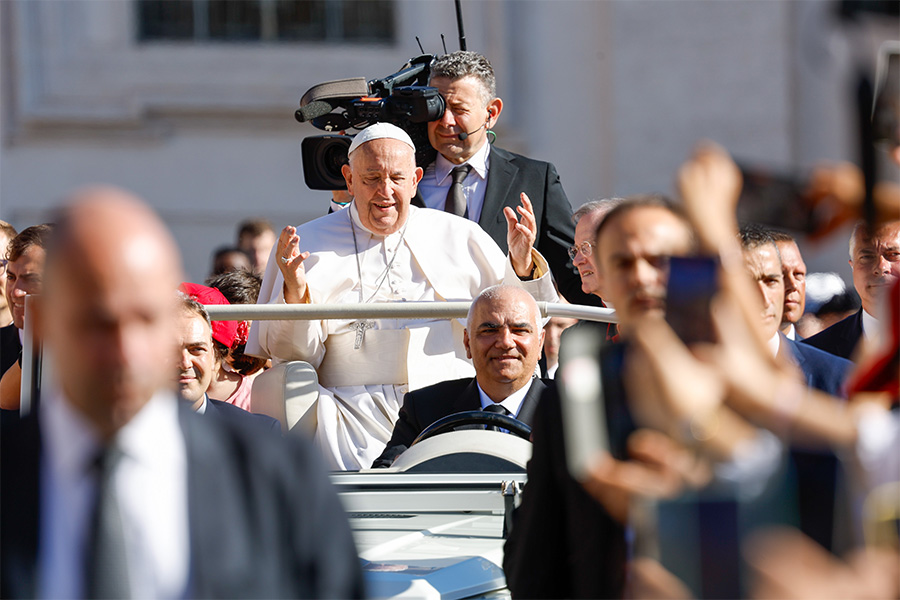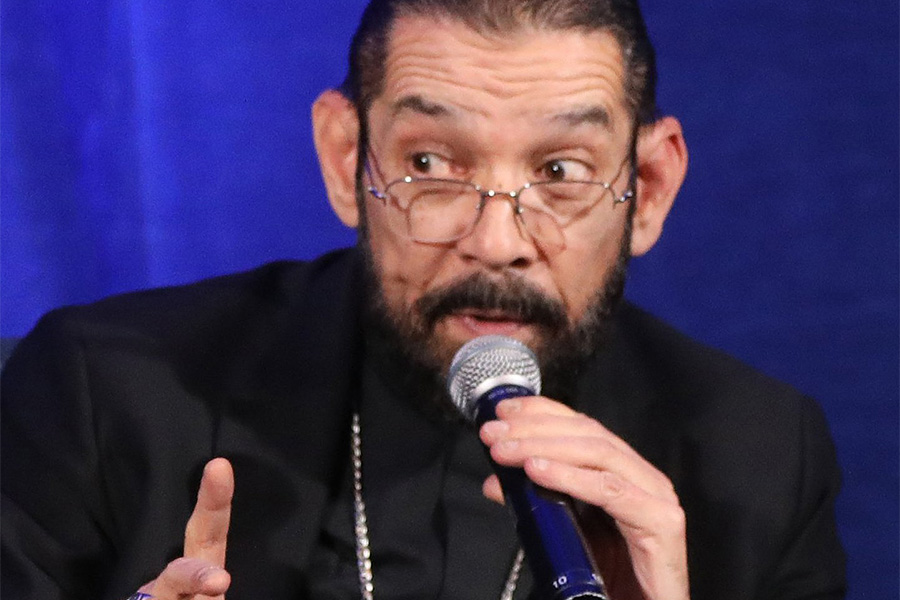BROOKVILLE, Ind. (CNS) — Father Vincent Lampert has traveled to the ends of the earth in his ministry fighting the devil as an exorcist.
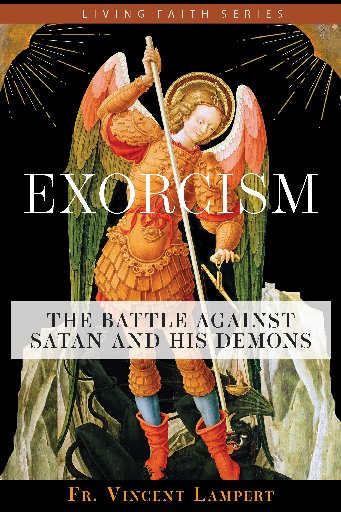
From South Africa to Alaska and points in between, the pastor of St. Michael Parish in Brookville and St. Peter Parish in Franklin County has carried out this ministry since 2005.
When Indianapolis Archbishop Daniel M. Buechlein appointed him to this ministry 16 years ago, there were only 12 priests in the U.S. who were exorcists. Today, there are 125.
Now, one of the senior exorcists in the U.S., Father Lampert is often called upon to mentor priests newly appointed to the ministry, or sometimes to perform exorcisms in far-flung locales.
In 2019, he traveled to Alaska to help a newly appointed exorcist with a special case.
“We were in an Eskimo village about 300 miles west of Anchorage,” Father Lampert said. “A small, little village. And there we were in the church doing an exorcism.”
The priest shared some of his experiences in his book, “Exorcism: The Battle Against Satan and His Demons,” published last fall by Emmaus Road Publishing.
In the book, he compared exorcists to medical specialists who travel and consult far and wide to help people with their specialized knowledge.
He wrote that Catholics, with the help of their parish priests, can fend off the devil through their ordinary life of faith.
“Ultimately, it’s the very normal aspects of our faith that protect us from evil: going to Mass, celebrating the sacraments, praying, reading Scripture,” Father Lampert said. “It’s the ordinary aspects of our faith that will protect us from the evil one.”
The priest was appointed to serve as the archdiocese’s exorcist after the death of his predecessor, Msgr. John Ryan, who had been discreet in his ministry, not speaking about it publicly.
Because of that, and because there were so few exorcists in the United States in 2005, Father Lampert was unsure how to learn about this ministry.
“There was nobody I could turn to,” he recalled. “The knowledge of Msgr. Ryan had died with him,” he told The Criterion, archdiocesan newspaper of Indianapolis.
While on a sabbatical in Rome soon after being appointed as an exorcist, he was mentored by a Franciscan priest there who had been trained as an exorcist by Passionist Father Candido Amantini, the chief exorcist of the Diocese of Rome for decades.
“The church says the best way to become an exorcist is the apprenticeship model,” Father Lampert said.
Observing his mentor perform exorcisms, though, was shocking at times, the priest wrote, saying his mentor never flinched, even when an afflicted person started levitating.
“As the demon laughed hysterically and began to levitate, the priest put his hand on the person’s head and pushed the manifesting demon back into the chair, all the while never pausing with the exorcism prayer of the church,” Father Lampert wrote. “I must say at that moment I thought, ‘What has my bishop gotten me into?'”
Years later and with experience under his belt, Father Lampert isn’t taken aback by the manifestation of demons.
“I’m not interested in seeing the theatrics of the devil,” he said. “The focus should be on the power of God and what God is doing in the lives of people who are afflicted.”
He is happy to see the growth in the ministry of exorcists in the U.S. and credits this in part to attention drawn to exorcism by recent popes.
“If the church isn’t prepared to help people who turn to her and who believe that they’re dealing with demonic influence, then they’ll turn elsewhere,” he said. “And where they turn elsewhere may not necessarily bring them the help that they need. It may actually fracture and break them even further.”
He said the growth also could be from the openness of speaking about this ministry, which he has done around the world.
“More people today are fascinated by the devil than they are with the power of God,” Father Lampert said. “We should never believe that God and the devil are on the same playing field. The devil is still a creature.”
Auxiliary Bishop Jeffrey S. Grob of Chicago was appointed exorcist for his archdiocese in 2006. He and Father Lampert have known each other for decades, having been seminarians together before they were ordained in the early 1990s.
Bishop Grob appreciates Father Lampert’s willingness to speak publicly about the ministry of exorcism.
“There are a handful of guys who are more out there, trying to build a healthy balance in the understanding of it,” the bishop said. “There are so many skewed understandings of the ministry. Father Lampert is a very solidly grounded guy in his faith, his practice of the faith and his teaching of the faith.”
“He has good discernment. He looks at a situation and sees what it is and what it’s not,” he added.
Father Lampert said the church’s approach to demonic activity takes a healthy middle ground between two more extreme views.
“There are people who don’t believe in the reality of a personified evil,” he said. “They would say that evil is nothing more than humanity’s inhumane treatment of one another. … Then there’s the flip side of that where you have people that see the devil behind everything and that we’re all poor victims of what the devil is trying to do.”
In his book, Father Lampert said that while he affirms the reality of the devil and of demons afflicting people, he is “trained to be a skeptic.”
“I should be the last one to believe that someone is possessed,” he wrote. “I must exhaust all reasonable explanations for what is taking place in the person. Therefore, experts in the medical and psychiatric sciences are always consulted.”
When those explanations are exhausted, he is willing to use the spiritual means the church provides.
Sometimes, it takes a long time for the ministry of an exorcist to have the desired effect. In his book, he describes ministering for more than a year to a woman possessed by seven demons.
Not being caught up in the “theatrics of the devil,” when she was finally free of the demons, Father Lampert took his success as another day at the office. He celebrated by getting a chocolate milkshake at a nearby Dairy Queen.
“The place was crowded and as I waited in line to place my order,” he wrote, “I thought to myself that if these people knew where I had just come from I would be like Moses parting the Red Sea.”
One of the reasons Father Lampert is so successful in his ministry is that he views it as part of his priestly vocation.
“A vocation is a calling from God,” he said. “Because there are fewer priests, we wear so many hats and are pulled in so many directions, there’s the danger of seeing the priesthood as an occupation. As a vocation, though, you’re a priest 24/7. As an occupation, you do your thing and you’re done and go on to the next thing.”
He also feels strongly about the positive impact of his ministry.
“Ultimately, everything the devil does plays into the hands of God. I believe that wholeheartedly. And, because of that, I always have hope and joy,” he said.
Also see
Copyright © 2021 Catholic News Service/U.S. Conference of Catholic Bishops

